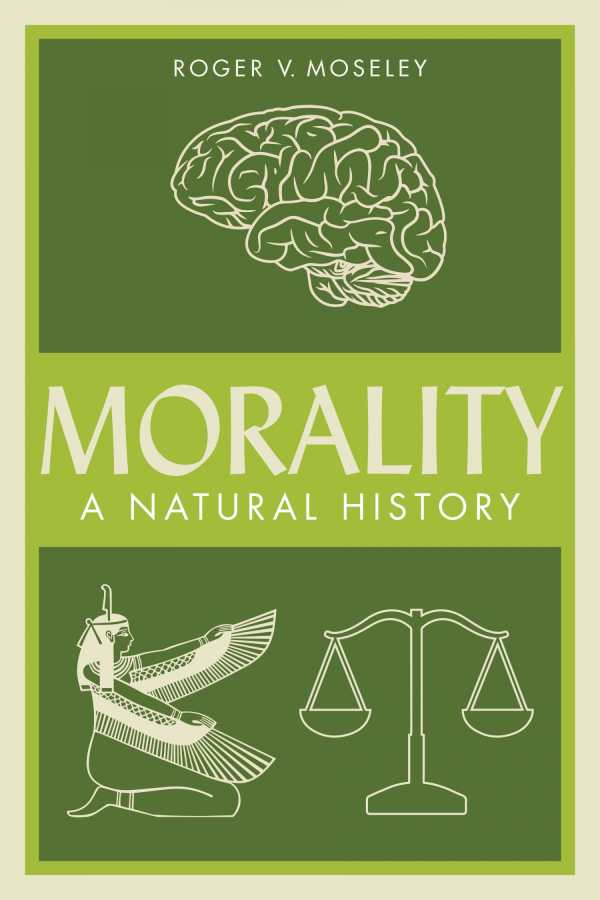Morality
A Natural History
A wide-ranging, organized, cohesive statement about what morality means, Morality is a thought-provoking text.
Roger V. Moseley’s erudite social science book Morality examines how moral and ethical decisions are made and understood.
Coming out of a personal quest to understand how and why people choose right and wrong, the book argues that morality evolved to help people cooperate and flourish in a hostile world. It begins with a broad overview before turning to philosophical definitions and topical explorations of religion, neuroscience, game theory, psychology, evolution, and anthropology; its summaries of ideas across disciplines are cogent.
This work expands morality beyond notions of it within traditional religious teachings; its conclusions apply to all people, and its utilitarian perspective recognizes the necessity of compromises. Here, morality is about searching for the best way to live with courage and authenticity. Traditional materials are employed in interesting ways to tease out and support the book’s ideas. Altruism is creatively examined through game theory, for example, tying it to ethical experiments such as the prisoner’s dilemma to show that self-interest sometimes results in unexpected, good choices.
The impressive range of materials drawn upon lends credence to the book’s conclusions, and the text translates complicated theoretical ideas into everyday language, telling stories about their origins and development. The early years of anthropology are covered in a narrative fashion, with pauses that juxtapose its development with Thomas Hobbes’s “gloomy pronouncements” about the human condition, adding context.
Its style both academic and engaging, the book makes complicated ideas easy to understand. However, its topical overviews opt for range over depth, considering, for example, free will in just a handful of pages and asserting that a more expansive discussion of free will is possible; this consideration functions more as a precursor to the book’s longer look at determinism. The text lingers with the ideas that it finds the most compelling and is more dismissive of those seen to contradict its notions; at times, its general exploration of morality shifts to become more like a collage of personal intellectual development.
Footnotes expand beyond basic bibliographic information and provide helpful insights into the reasons why some material was included, while a comprehensive table of contents and index make the work easy to navigate. In the end, the book succeeds in making a case that morality ought to be considered more universal than culture suggests, though its focus on theory means that real world examples and practical applications are given short shrift.
A wide-ranging, organized, cohesive statement about what morality means, Morality is a thought-provoking text.
Reviewed by
Jeremiah Rood
Disclosure: This article is not an endorsement, but a review. The publisher of this book provided free copies of the book and paid a small fee to have their book reviewed by a professional reviewer. Foreword Reviews and Clarion Reviews make no guarantee that the publisher will receive a positive review. Foreword Magazine, Inc. is disclosing this in accordance with the Federal Trade Commission’s 16 CFR, Part 255.

